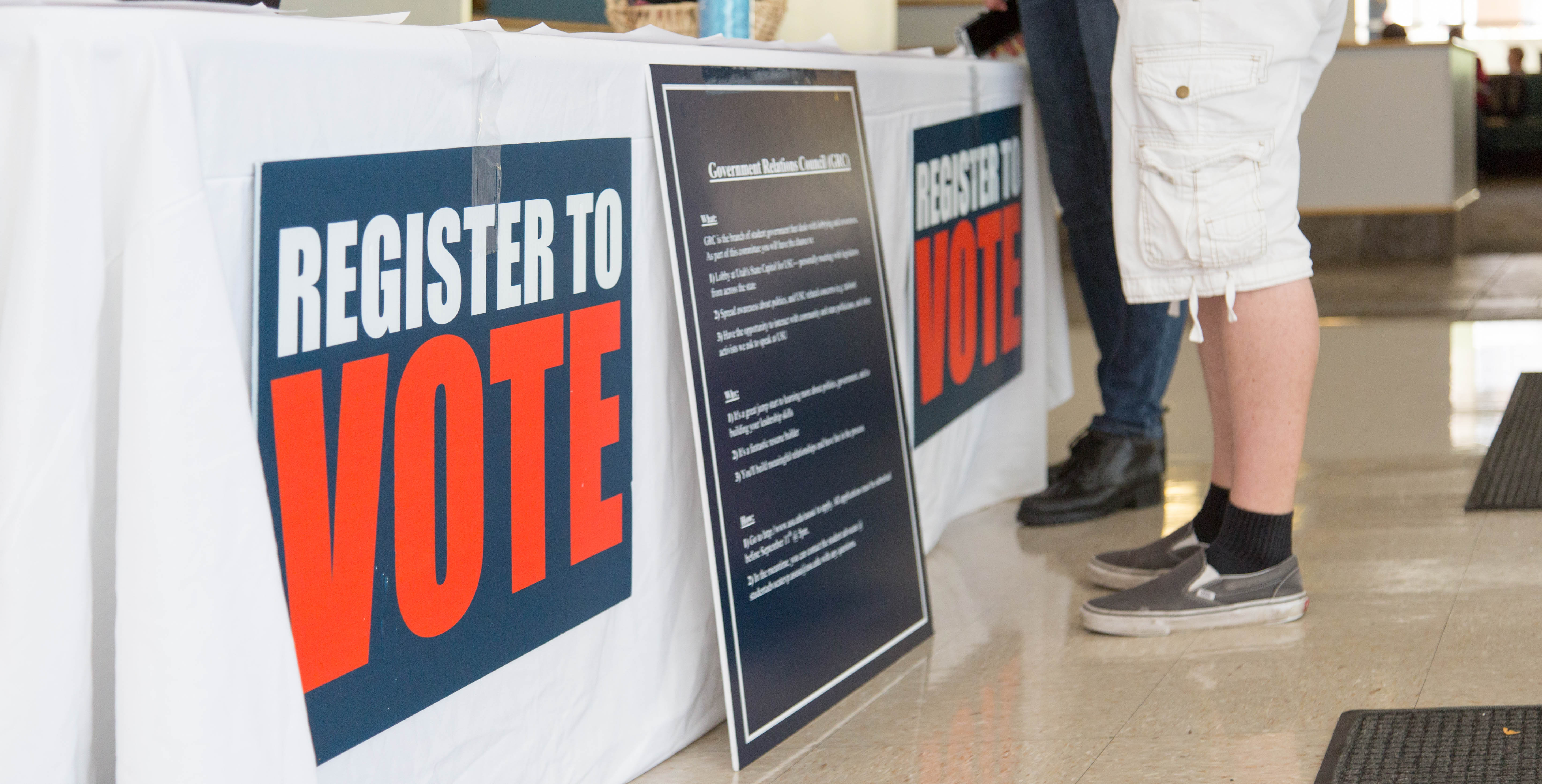Voices heard through voter registration drive
Students were given the opportunity to become registered voters in the state of Utah, from Monday through Wednesday last week.
The Government Relations Council, commonly known as the GRC, set up the voter registration drive in The Hub on the first floor of the Taggart Student Center. The GRC is committed to helping students voice their concerns and opinions so that they feel a part of the local and national communities.
“We attend the city council meetings. We like to be involved in the community as well,” said Jadyn Carter, a member of the GRC.
The GRC has been responsible for small but noticeable differences in the community, like increasing the parking in front of the Maverik Stadium from two hours to three.
Many young adults today are not very active when it comes to voting or voicing their concerns in the community. One of the biggest advantages of at least registering to vote is having a voice in the community and being able to see change, according to the members of the council.
“If you want something to change, you have to do something about it otherwise it will stay the same. We really are looking for ways to advocate for every student, but if no one comes and tells us their opinions, we are just basing our decisions off our values,” Carter said.
Lauren Winters, a sophomore majoring in Spanish who registered to vote, feels that it is her duty to voice her concerns and make a difference.
“I was motivated to register to vote because I feel that it is an extremely important responsibility as an American citizen. I feel that it is my job to become informed about candidates and policies in order to make an educated decision about what will be happening to the future of my state or country,” Winters said.
While many may agree with Winters, others may even be discouraged to vote, believing just one vote missing doesn’t count and that they can’t really make a difference.
Barrett Anderson, the director for the GRC, said that registering to vote is — on the contrary — one of the best ways to make a difference.
“I feel like registering to vote is essential, because if you don’t register, you’re leaving one of your principle rights as an American citizen and your number-one way to influence policy. If you don’t register, you’re kind of just existing in America, politically speaking. You’re not necessarily able to make a difference,” Anderson said. “A lot of people say, ‘My one vote won’t make a difference.’ Well, if everyone thought that way, then it wouldn’t make a difference.”
“If you look at the demographics of voters ages 18 to 24, the voter turn-out rate is just abysmal — nationally and locally — and we see that in the policy that affects us,” said Steven Prawitt, a freshman who recently joined the GRC. He said that there are a lot of funds that are going towards older people because the older community is more politically active.
“If we have a higher voter turn-out, even incrementally as it comes along, locally we are going to see change and especially nationally, and people don’t seem to understand that if we all register and put our concerted effort, we are going to see the change,” Prawitt said.
When voting in national issues, it may feel overwhelming, or even difficult to feel that one vote can make a difference, but when it comes to local issues, the GRC believes people should pay attention to these issues because of their direct voice in the community.
“We feel the effects of local issues more than national. A lot of local issues are swayed by less than 300 votes. That’s one club on campus that can make all the difference in legislation,” Anderson said. “Usually the people that vote are older. If younger voters got more organized and were able to get out and register, a lot of the funds that you see could go towards helping younger voters.”
Students will be given more opportunities to register to vote, along with the opportunity to see booths discussion local and national issues and political figures.
— roniastephen@gmail.com

